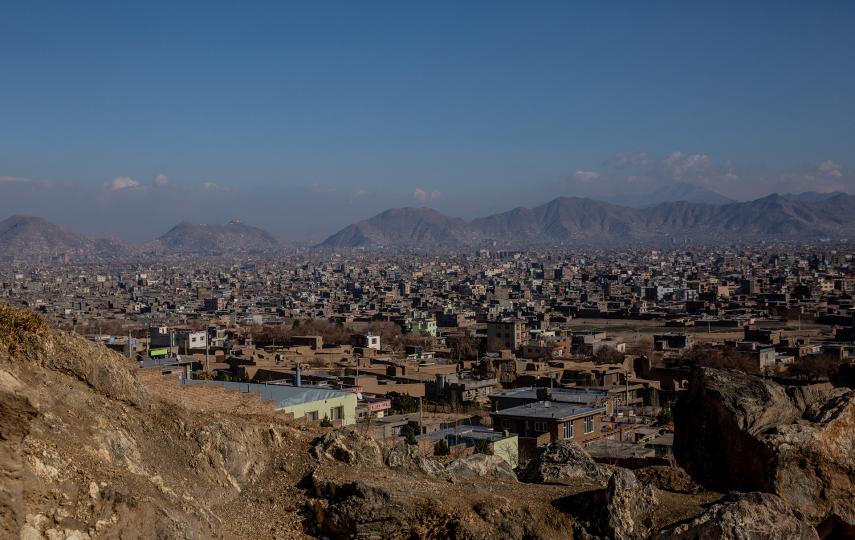Jordan’s Ministry of Environment is to install Internet-linked sensors in industrial and densely populated areas to monitor fuel emissions as part of a campaign to stem rising pollution levels in the kingdom.
The sensors will enable the Environment Ministry to get an up-to-the-minute picture of air pollution levels in given areas and take action - that is the plan. "These sensors will provide us with up-to-date measurements on the level of air pollution," said Ministry of Environment spokesperson Isa Shboul.
France is funding the purchase of the devices, which will be installed by the end of the year in the bigger cities, including, Amman, Irbid and Zarqa, said Shboul.
Zarqa, 30km east of Amman, is home to 1.5 million people and some of the most polluting industries, including the government-run Phosphate and Jordan Petroleum Refinery companies. The area is also affected by emissions from the Al-Hussein thermal power plant, industrial effluent, and dust from brick and stone quarries.
Industries within or near cities are required by law to install filtering systems to minimise emissions of carbon monoxide and other harmful gases, but citizens in Zarqa and nearby towns have been complaining of high levels of pollution and say factories are ignoring the law.
Shboul said the authorities would take tough action against factories that do not respect the law: "The government is determined to clamp down on excessive harmful emissions and will threaten to shut down any facility that does not abide by the law," said Shboul.
Tougher vehicle emission standards
"All our efforts in the coming months will be concentrated on reducing the emission of toxic gases,” said Shboul, adding that both light and heavy vehicles in densely populated areas would be monitored.
Officials plan to start spot checks on the emissions of vehicles in cities, with the focus on highly populated areas. According to the Ministry of Transport, there are at least 1.5 million vehicles in Jordan. Vehicles failing to meet the required emission standards will be fined, said Shboul.
The installation of the devices in December coincides with the beginning of a nationwide campaign to end the use of leaded fuel: By the end of the year Jordan aims to reduce the consumption of leaded petrol by 70 percent in preparation for a complete switch to unleaded petrol by the beginning of next year, said Shboul.
Medical experts say short-term exposure to high levels of lead can result in brain and kidney damage, while chronic exposure could affect the blood and central nervous systems, blood pressure, kidneys and the body's ability to metabolise vitamin D. Children are particularly sensitive to the effects of lead, according to specialists.
The plan to phase out “normal” petrol is designed to reduce lead emissions caused by the combustion process. Lead is toxic and does not degrade and can find its way into the human blood stream.
Risks of switching to unleaded?
Environmentalists are concerned that more serious health risks could emerge from the use of unleaded fuel at the current stage.
They say the country lacks the necessary infrastructure to prevent the leakage of highly toxic material used in the production of unleaded petrol.
"The direct implications of such additives are as bad if not worse than using leaded fuel. We warned the government not to switch to unleaded fuel because petrol stations are not equipped with double layered tanks that can contain the toxic materials used to produce unleaded fuel," Ahmed Koufahi, executive manager of Jordan Environment Group, said.
Earlier this year, parliament endorsed environment laws which will ensure action is taken against companies and individuals who dump toxic material or otherwise damage the environment. Other environmentally friendly initiatives include encouraging the switch to gas instead of oil to generate power, and introducing biogas projects to reduce carbon dioxide emissions.
mbh/ar/cb
This article was produced by IRIN News while it was part of the United Nations Office for the Coordination of Humanitarian Affairs. Please send queries on copyright or liability to the UN. For more information: https://shop.un.org/rights-permissions
![The new eco police force would work on creating "a pollution-free environment." [Jordan] The new eco police force would work on creating "a pollution-free environment". [Date picture taken: 05/17/2006]](https://assets.thenewhumanitarian.org/s3fs-public/images/20065214.jpg)




